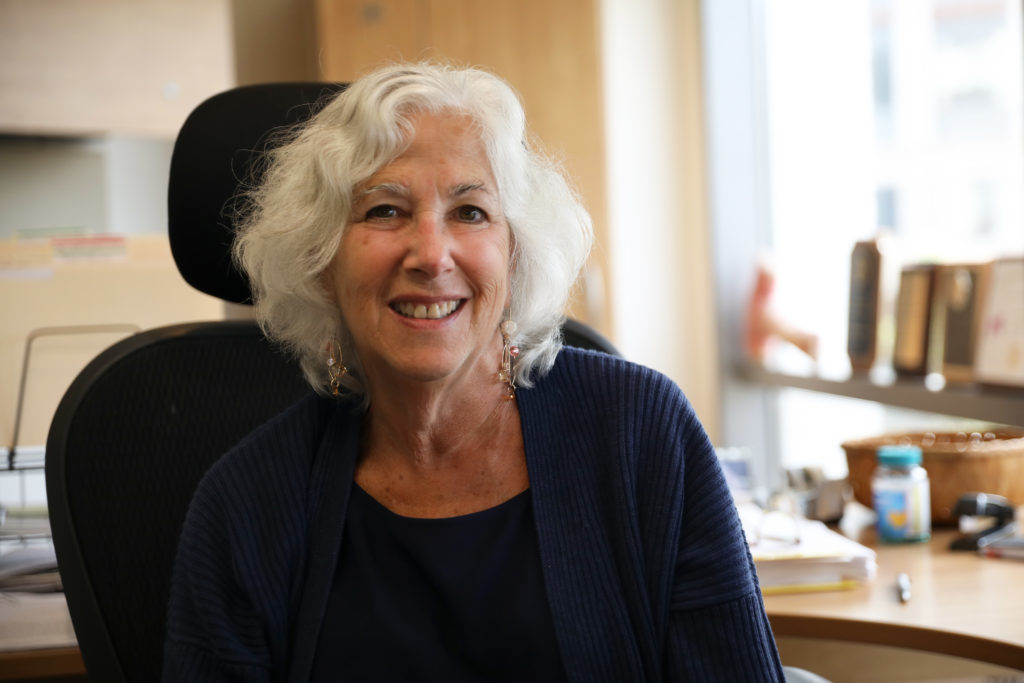Twenty-one faculty members signed onto a court brief disputing a rule set by the Trump administration that denies green cards to immigrants deemed likely to use public health benefits.
The brief – filed Sept. 10 – challenges the Trump administration’s “public charge” rule, which gives the government greater latitude to reject green cards for prospective immigrants who are deemed likely to depend on government aid, like Medicaid, food stamps and housing assistance. Faculty and immigration law experts said the brief likely won’t strike down the rule, but they hope that health care professionals can mitigate misinformation about who the rule effects: immigrants without green cards.
“It persuasively argues the problem of the threat, with an incredible array of deans and scholars speaking in a strong, unified voice,” Sara Rosenbaum, a professor of health law and policy who signed onto the brief, said in an email.
Ken Cuccinelli, the acting director of U.S. Citizenship and Immigration Services, announced the rule at a White House press briefing Aug. 12, saying the rule will require immigrants to become more “self-sufficient.”
“We certainly expect people of any income to be able to stand on their own two feet,” Cuccinelli said at the press briefing.
The rule classifies immigrants who utilize public government assistance programs as “public charges.” The U.S. Department of Homeland Security officially implemented the public charge rule Aug. 14, and the rule will go into effect Oct. 15.
If the proposed rule goes into effect, immigrants who use one or more of a now-expanded set of public benefits for a total of 12 months within a 36-month period will be classified as “public charges,” posing a barrier to attaining legal permanent resident status for low-income immigrants, according to a National Immigrant Law Center release. Using two benefits in one month counts as receiving two months of benefits, according to the law center.
Rosenbaum said the public charge rule presents a “major” threat to public health. She said the rule discourages immigrants from seeking health care services they qualify for under U.S. law, like Medicaid and the Supplemental Nutrition Assistance Program, which provides food-purchasing assistance to low-income people.
Rosenbaum said the rule could discourage immigrants with green cards from seeking out health care and nutrition services because they could believe they do not have access to care even after obtaining the card.
Twenty-one faculty members signed onto the brief, including 14 in the Milken Institute School of Public Health, three in the School of Medicine and Health Sciences – including one member of the Medical Faculty Associates – and four in the School of Nursing.
“They also are potentially penalized, most shockingly, if they use health care for medical conditions,” she said.
In May, six public health faculty signed onto an amicus curiae brief to challenge a federal court decision that allowed the state of New Hampshire to require residents to work 25 hours a week to qualify for Medicaid insurance.
Leighton Ku, a professor of health policy and management, said he did not sign onto the brief because he is serving as an expert witness for plaintiffs involved in three lawsuits – two in New York and one in California – challenging the public charge rule.
“My role was to document the harm that would occur for members of immigrant families, as well as the harm to health care providers and state and local governments that would be caused by the federal government’s regulation,” he said in an email.
Ku said he determined, after reviewing evidence from the Urban Institute, Centers for Disease Control and the U.S. Department of State, that an estimated 1 to 3.2 million members of immigrant families could lose or avoid signing up for Medicaid insurance each year.
He said declining Medicaid enrollment could increase the number of deaths by 1,300 to 4,000 each year among uninsured individuals with diseases like diabetes, heart disease and cancer.
“I hope that the evidence presented in my declaration and in the amicus brief helps the courts understand why the rule should be stopped,” he said.
Immigration law experts said the amicus curiae brief likely will not prompt government officials to reverse the public charge rule. They added that misinformation about which immigrant populations the rule affects still persists in immigrant communities.
Veronica Thronson, a clinical professor of law and the director of the immigration law clinic at Michigan State University, said the public charge rule only affects immigrants in the process of applying for green cards. Thronson said previous versions of the rule included stipulations that revoked green cards for immigrants who already had legal permanent status.
But she said widespread misinformation about whom the rule affects will scare residents who already have green cards into not using public benefits out of fear they may lose their legal permanent status.
“There are so many categories of people who are not being affected by this rule, and we should definitely ensure that if people need medical care that they should be able to go look for it,” Thronson said.
Luvia Quiñones, the health policy director at the Illinois Coalition for Immigrant and Refugee Rights, said the brief – along with pending congressional bills and public commentary about the rule – may be enough to prolong the period before the rule takes effect.
“Many of us do have high hopes that we could stall it – we may not be able to completely stop it, but I think stall it,” Quiñones said.
Ed Prestera and Ilena Peng contributed reporting.




